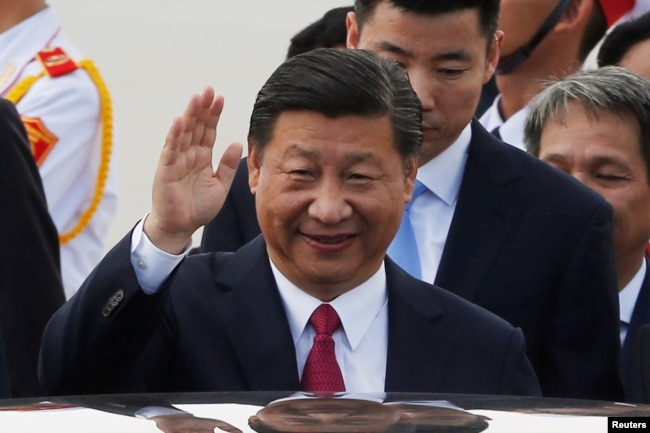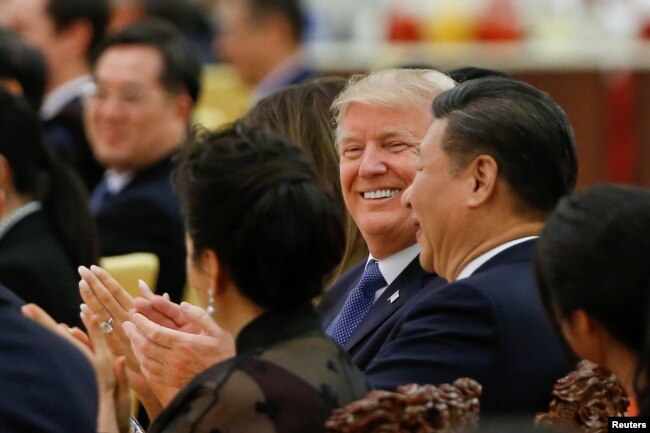U.S. President Donald Trump told the APEC CEO Summit that he is willing to make bilateral trade agreements with any country in the Indo-Pacific region, but he firmly rejected multinational deals such as the 12 nation Trans Pacific Partnership, which was quickly abandoned in the first days of his administration.
“I will make bilateral trade agreements with any Indo-Pacific nation that wants to be our partner and that will abide by the principles of fair and reciprocal trade,” Trump said. “What we will no longer do is enter into large agreements that tie our hands, surrender our sovereignty, and make meaningful enforcement practically impossible.”
WATCH: Trump: US Will No Longer Enter Into Large Agreements
From now on, however, Trump warned the United States will, “expect that our partners will faithfully follow the rules. We expect that markets will be open to an equal degree on both sides and that private investment, not government planners, will direct investment.”
How to achieve those goals
But making that happen is something that is easier said than done.
China has already shown that it has no intention of playing by the rules, said Fraser Howie, co-author of the book “Red Capitalism: The Fragile Financial Foundation of China’s Extraordinary Rise.”
“China has been in WTO terms simply much sharper and smarter than the Americans,” Howie said. “While the Americans went in with good faith thinking the Chinese would change and whatever, the Chinese never had any intention of changing.”
Howie added that trade and access issues are difficult and sophisticated, and so far Trump has a poor track record when it comes to follow through – be it his travel ban, the wall, healthcare or tax policy.
“Yes you’re going to get tough on them, but how do get tough without penalizing them,” he said. He added, “how can China be penalized when Xi Jinping is your best mate? It doesn’t make any sense.”
China has shown that it has no intention of playing by the rules, said Fraser Howie, co-author of the book Red Capitalism: The Fragile Financial Foundation of China’s Extraordinary Rise.
“China has been in WTO terms simply much sharper and smarter than the Americans,” Howie said. “While the Americans went in with good faith thinking the Chinese would change and whatever, the Chinese never had any intention of changing.”
Howie added that trade and access issues are difficult and sophisticated, and so far Trump has a poor track record when it comes to follow through, be it his travel ban, the border wall between the U.S. and Mexico, health care or tax policy.
“Yes you’re going to get tough on them, but how do you get tough without penalizing them,” he said. He added, “how can China be penalized when Xi Jinping is your best mate? It doesn’t make any sense.”
Chinese contrast
Chinese President Xi Jinping, whose country’s rise has been driven greatly by large-scale government planning, immediately followed Trump on the stage in Danang.
Xi embraced the multilateral concept, in particular calling for support for a Free Trade Area of the Asia-Pacific (FTAAP), which would harmonize regional and bilateral economic pacts.
China was left out of the TPP, which was led by the United States and Japan, and was meant in great part as a bulwark against China’s strategic ambitions.
Xi also termed globalization an irreversible trend, but said the world must work to make it more balanced and inclusive.
The speeches came just hours after Trump left China where he and Xi met several times Wednesday and Thursday.
Softer tone with China
In Beijing Thursday, the U.S. president had struck a markedly softer tone than in the past on touchy subjects such as North Korea and trade saying he had an “incredibly warm” feeling for Xi.
Trump noted the U.S. must change its policy.
“It’s too bad that past administrations allowed it go get so far out of kilter,” Trump said. “But we’ll make it fair, and it will be tremendous for both of us.”
WATCH: Trump: US Is Very Behind on Trade With China
“For China and the United States, cooperation is the only viable choice, and win-win cooperation can take us to a better future,” said the Chinese president.
On North Korea
Much of Trump’s Asia tour has focused on North Korea, which is developing a nuclear and missile program in violation of U.N. Security Council resolutions.
Trump pressed Xi privately on the North Korea nuclear issue, Trump administration officials said. According to Secretary of State Rex Tillerson, Trump told Xi, “You’re a strong man, I’m sure you can solve this for me.”
Speaking in Beijing, Tillerson said “there is no disagreement on North Korea” between the United States and China. The diplomat pointed out that the Chinese have been clear and unequivocal over two days of talks that they will not accept a North Korea with nuclear weapons.
“There’s no space between both of our objectives,” Tillerson said. “We have our own views of the tactics, the timing and how far to go with pressure and that’s what we spend a lot of time exchanging views on.” | via VOANews


